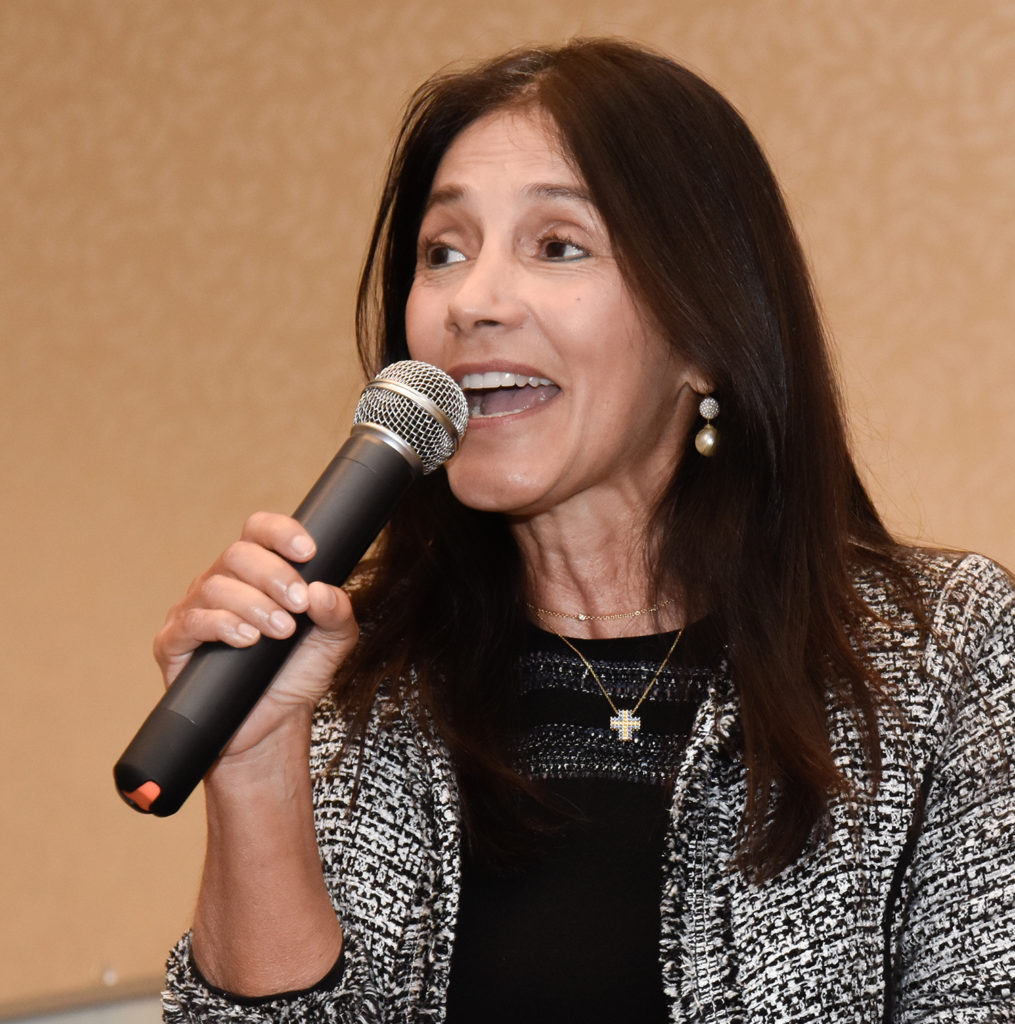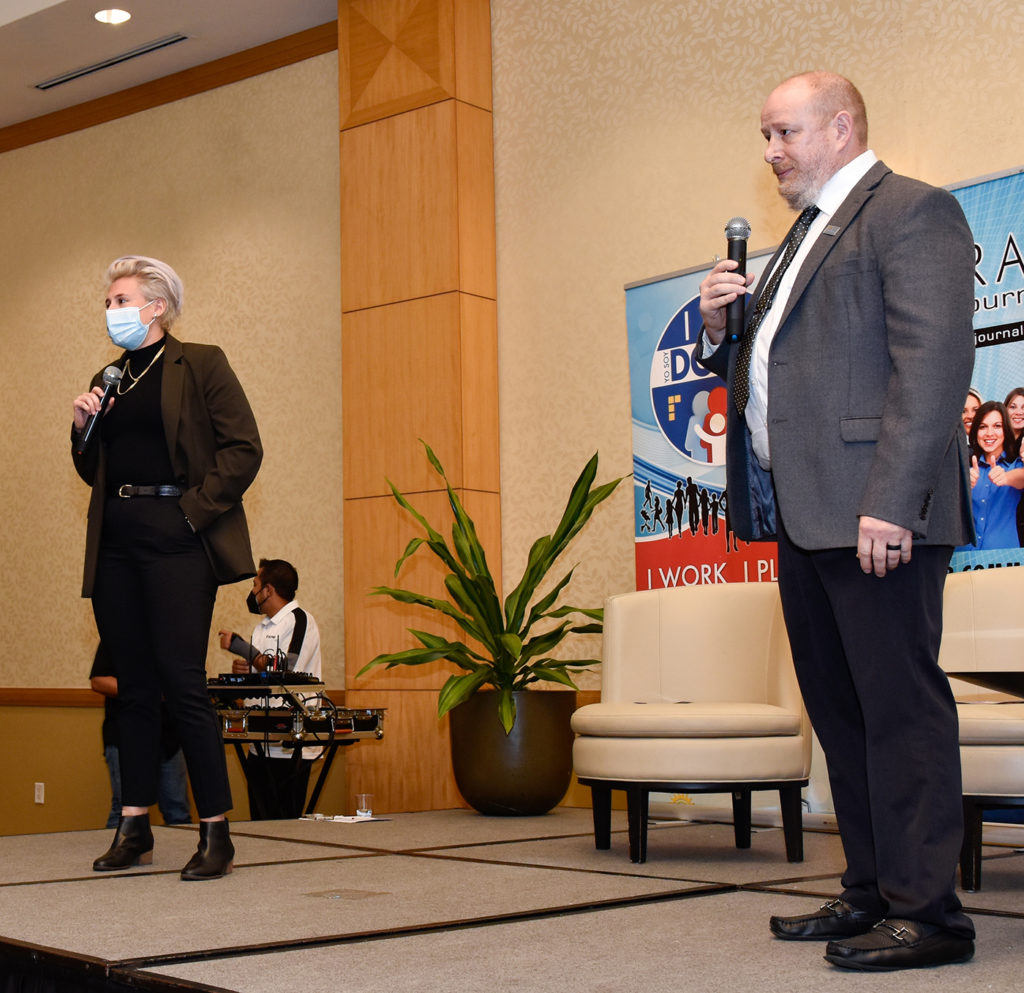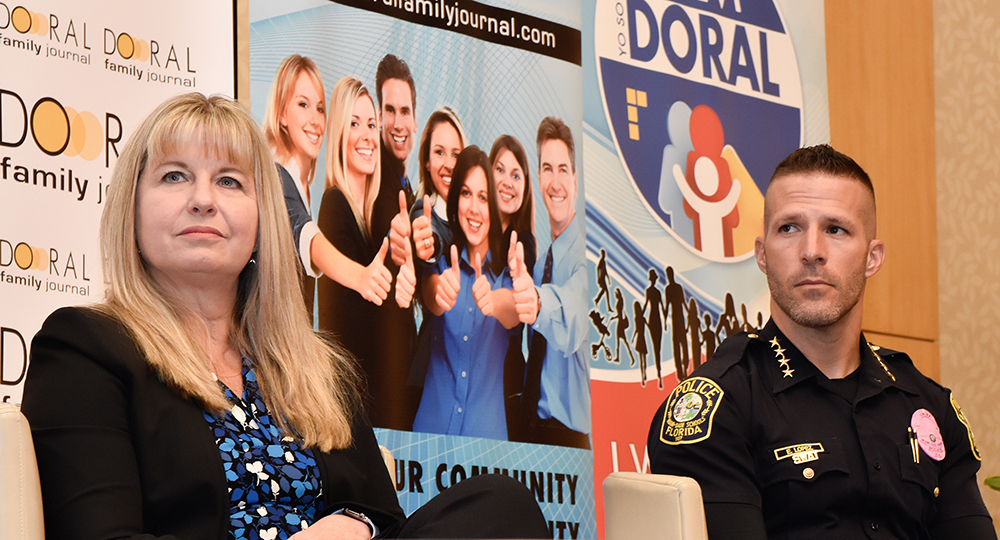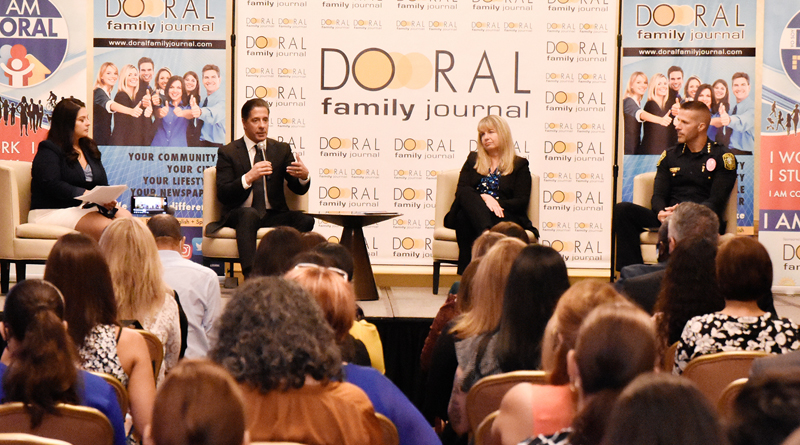Fall Forum: Solutions to the Challenges Children Face Today
By: Diana Bello Aristizábal
Having physically and emotionally healthy children is the aspiration of any community. With this goal in mind, educators, parents, PTA members, community leaders, mental health specialists, and law enforcement officers joined together to discuss the challenges children and teens are facing today within Miami-Dade School District.
 The Seventh Fall Expo, which took place last month at InterContinental Hotel in Doral, became the perfect spot for six experts to talk about how to solve the challenges kids face today, aiming at making this school year safe and enriching for all.
The Seventh Fall Expo, which took place last month at InterContinental Hotel in Doral, became the perfect spot for six experts to talk about how to solve the challenges kids face today, aiming at making this school year safe and enriching for all.
The event was supported by Doral Family Journal, committed to families and school education, and Christi Fraga, District 5 Miami-Dade County School Board Member, who served as host and moderator.
Mental health: “You are the gardener of your mind”
Emotional health is an issue about which it is urgent to educate the community. For this reason, the forum began with the presentation of Beatriz Martinez-Peñalver, a licensed psychotherapist with 30 years of experience in mental health. “Happiness is a skill you can learn and the best teachers on this are the parents,” she says.

From her professional perspective, happiness is built from what’s in your mind. “There is a connection between what we think and how we feel. Pleasant thoughts release neurotransmitters such as dopamine that provides a good feeling, while negative thoughts release cortisol that creates anxiety.”
Is because of this dynamic that her advice to parents is to teach children to picture the mind as a garden in which you must sow positive and pleasant seeds (thoughts) to make it healthy.
But do we control our thoughts? According to Martinez-Peñalver, we can all choose what we think about and use repetition to make pleasant thoughts stick in our minds over time.
In children and adolescents, repetitive thoughts, whether positive or negative, come mainly from what they hear from their parents. “We have to pay close attention to the information we give our children to program their subconscious mind, which is the one we work with most of the time,” she adds.
In this sense, it is important that the messages they receive are aligned with their innate qualities or with what they want to achieve in life such as creativity, motivation, or abundance.
Messages such as ‘I am creative’, ‘I am talented’, ‘I am complete’ or ‘I am light’, among others of a positive nature, should be part of everyday life and must be instilled through audios or posters first thing in the morning and before going to bed to help them remember who they are. At those moments, they can also be taught to be grateful so that they learn to focus on the things they have and not the ones they lack.

Online safety
Another issue that concerns the educational community is the risks to which children are exposed to while online. Special Agent Nicole D. Harris, linked to the FBI and assigned to a Cyber National ??Security Squad at the Miami Field Office, and Detective Lee Bieber, of the FBI’s Crimes Against Children and Human Trafficking Task Force at the Miami Field Office, talked about this matter.
“Let’s be clear about several things: A computer is any device that inputs, processes and outputs information, which includes cell phones and devices such as iwatch; today’s devices process large amounts of information; and thanks to Wi-fi, minors can be online from anywhere,” says detective Lee Bieber, emphasizing that due to this risk exposure is greater.
On the other hand, children and adolescents currently use a large number of social media and easy-to-access direct messaging apps, some of which are not appropriate for minors such as Tinder.
For all this, today from the cyber world they are more exposed than ever to become targets of offenders who through threats (sextortion) or online enticement (grooming) tactics seek to obtain sexual favors or scam them.
What can parents do? According to experts, first get familiar with your child’s social media use. On the other hand, establish clear rules about where, how long and when to use it, have total access to the devices from which they connect and constantly talk to them about the dangers they are exposed to.
Finally, the FBI’s experts provided parents with the following recommendations in case their children become victims of cybercrimes: Let them know that they are not in trouble, ask them to see the communications or images received and do not delete evidence.

Protection against COVID-19 and other issues
The forum ended with a Q&A panel by Alberto M. Carvalho, Superintendent of Miami-Dade County Public Schools; Chief Edwin Lopez, School Resource Officer for the M-DCPS Police Department, and Dr. Lisa Gwynn, Associate Professor of Clinical Pediatrics and Public Health Sciences at the University of Miami School of Medicine.
Superintendent Carvalho began the panel by answering a question about what the future of the pandemic looks like in the district asked by Christi Fraga, who as moderator collected the main questions that people asked from social media.
“We observed five criteria: positivity rate; number of COVID-19 cases per one hundred thousand; percentage of people eligible for vaccination who have been immunized; hospital capacity; and the CDC’s designation of the conditions of the community. We are fulfilling all the criteria except the second one,” he said during the October forum.
However, despite the fact that this criteria is not being fully met, the expectation is that the number of cases will continue to decrease. At the closing time of this edition, Miami-Dade County was experiencing a steady decline in infections, prompting the Superintendent to announce that the use of face masks would be optional for middle and high school students from now on.

In an interview with Doral Family Journal during the forum, Carvalho predicted that safety measures against COVID-19 could be relaxed as well as increasing the graduation rate in the future due to the good job being done reinforcing face masks use and in the vaccination process.
“Our main challenge now is to accelerate our children’s learning since many of them are delayed in reading and mathematics due to the conditions in which they lived during the pandemic,” he says.
During the panel, guest speakers also talked about sexual violence and how these cases should be handled. “Many parents are afraid to search their children’s electronic devices and that is where it all begins. The best way to prevent is parental involvement from day 1 to detect dangerous behaviors or activities early on,” advises Chief Edwin Lopez.
Carvalho has a similar opinion, adding that ignoring the problem is the worst thing to do. “As a school system we promote not staying silent,” he adds.
According to Dr. Gwynn, the same strategy must be applied to address other problems such as the use of illicit substances or vaping, the latter considered the greatest threat young people face today. “We should have conversations with our children about what is happening outside from a very young age and set boundaries on it,” she says.
Finally, the users asked questions related to homework to which Carvalho replied by saying students should not spend more than two hours a day on it while at high school, the importance of sleeping between 8 and 12 hours a day (in the early years), and on the state of emergency in which children’s mental health is. “Access to mental health services has to improve,” says Chief López.


yeah. That is impressive article because they have shown us exact point.